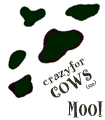The Health Benefits of Eating Cheese
By Helen Gadd
Cheese is produced throughout the world and is, arguably, the most delicious by-product to come
from cows of all breeds. Many individuals avoid eating cheese because it is perceived as being
high in calories and high in fat. Certain diets programmes (such as Weight Watchers) villainise
cheese, but actually, whilst it is true that it is certainly a high fat product,
there are also a myriad of health benefits
associated with eating the product. Cheese is versatile, nutritious,
and it tastes fantastic: you can use it to add flavour and enhance almost any meal. So what are
the health and nutritional benefits of including cheese in your diet? And how much cheese is
considered to be healthy?
Rich in Essential Nutrients
Cheese contains a wealth of nutrients, such as calcium, protein, phosphorus, zinc, vitamin A and vitamin B12.
The most important of these is calcium, which most adults in the United States are actually deficient in:
the most recent statistics from official government bodies suggest that as many as nine out of 10 women and
six out of 10 men fail to meet the daily recommended intake of calcium. Cheese is a much easier way to
incorporate dairy (and therefore calcium) into your diet than milk drinking for many individuals. What's more,
if you're lactose intolerant then it is still important to ensure your diet is rich in calcium but you obviously
can't consume regular cow's milk: you can, however, eat hard cheeses, as these contain little to no lactose,
making them an ideal way for those lactose intolerant individuals to get the calcium they need in their diet.
Cheese is also a great source of high quality proteins which the body needs to build and maintain muscle strength:
important at every stage of life, but particularly important as we begin to age. If you have suffered from an
illness that causes muscle wastage, such as cancer, HIV/AIDs or an addiction to either drugs or alcohol then
focusing on good nutrition and increasing your cheese consumption can help you to rebuild your muscle strength
and give you many of the nutrients that you need to accelerate your healing process. Without good muscle
strength you may well find that you are susceptible to developing other illnesses, so it is important to try and
regain your strength, through a nutritionally robust regime, as quickly as possible.
Cheese is Good for Your Teeth
Most people know that calcium consumption is good for their teeth, but what you may not know is that the very
best thing you can consume for the health of your teeth and mouth is cheese. Studies into the health benefits
of cheese consumption have found that, if an individual consumes an acidic drink (known to be very damaging to
tooth enamel) then the best thing you can consume to help to reduce the acidity of the mouth and increase the
calcium levels in the plague surrounding the teeth is eating cheese. In fact, most dentists recommend cheese
as the most tooth-kind snackthat you can consume between meals in order to help prevent tooth decay.
A Source of Good Fats
Whilst it's true that cheese contains fat, it's important to remember that
not all fats are created equal and
actually, the fat in cheese is 'good fat', particularly when compared to the fats found in candy and sugar
based products. Cheese contains saturated fats, which for many years were thought to lead to, and be a primary
cause of, heart disease. However the latest research suggests that the 'saturated fats are bad message' is
actually incorrect and that they actually have a negligible effect on whether or not an individual will
ultimately develop heart disease. It's important to remember that we need fat in our diet to survive, and that
fat consumption is essential for our reproductive health, our brain development, and that it can even help to ward
off depression and other mood disorders. Avoiding fat consumption, therefore, can actually be bad for your health,
and there is certainly no better way to incorporate some fat into your diet than by eating some delicious and
nutritious cheese.
|



